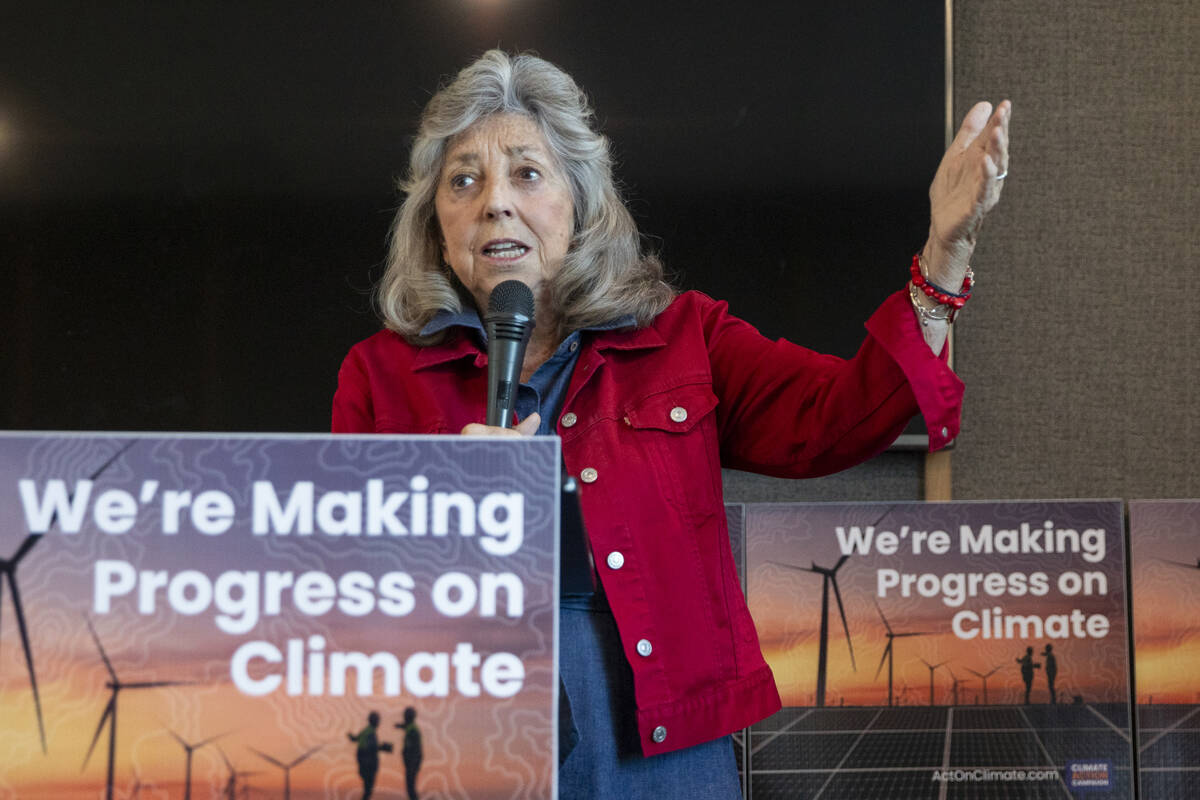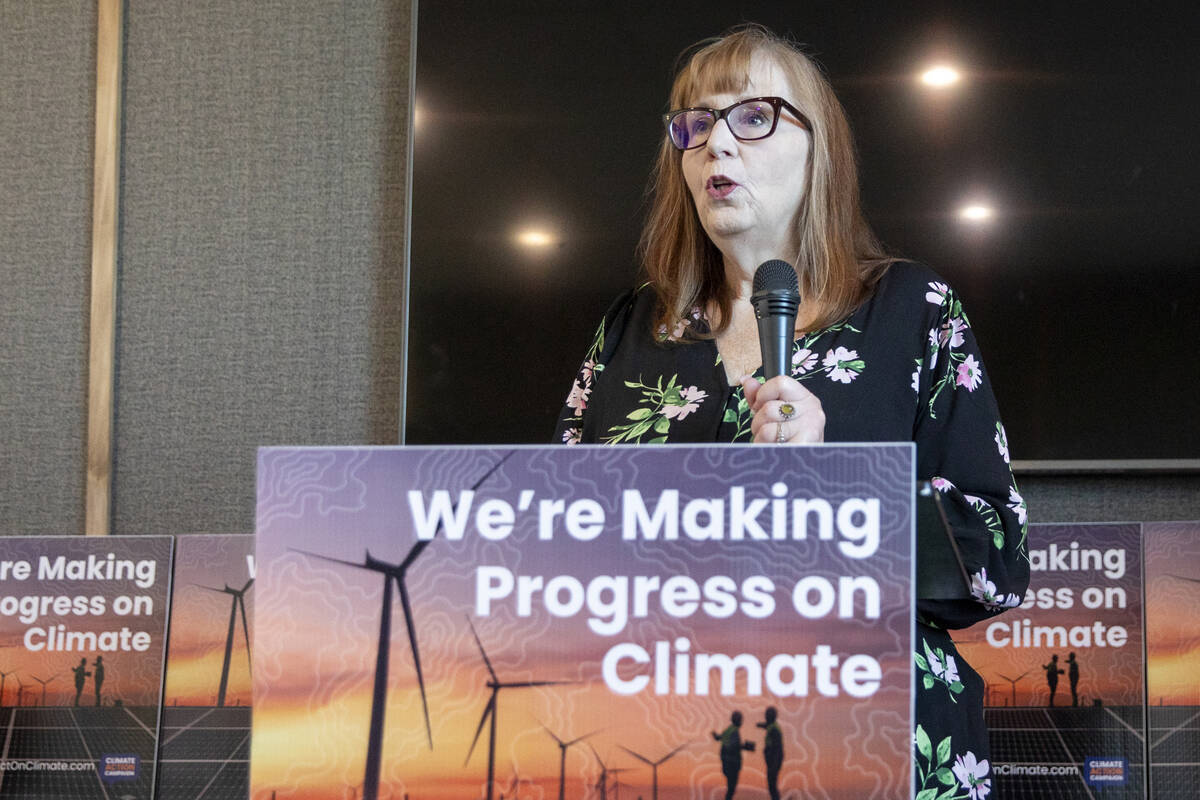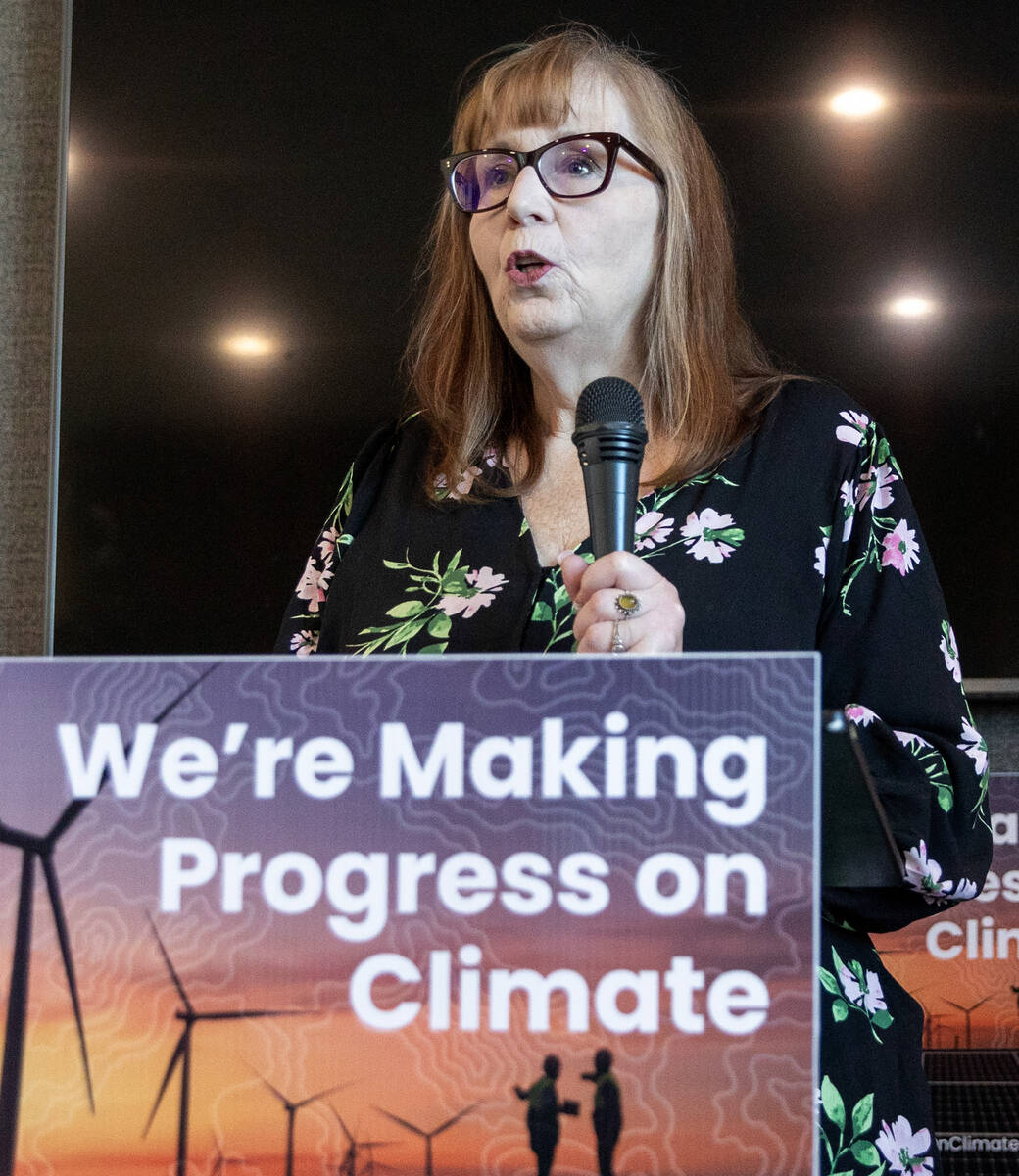With broken A/Cs and record temps, Las Vegas students brave extreme heat
Vicki Kreidel can tell when elementary schoolers are overheating.
They come in from recess with red faces. They may refuse to eat lunch. They can’t focus on anything but how hot they feel.
And heat is something she only expects to get worse with time.
“Any educator can tell you that students are more distracted when they’re uncomfortable,” said Kreidel, president of the National Education Association of Southern Nevada. “Not addressing what’s happening and how it will affect our schools is a recipe for disaster.”
Valley students who went back to school in August were greeted by less intense temperatures than July’s all-time record of 120 degrees. But highs still hovered near 100 degrees, and many like Kreidel worry about the city’s future in the face of climate change.
Kreidel joined U.S. Rep. Dina Titus, D-Nev., and environmental groups at the Bottega Exchange co-working space in southwest Las Vegas last week, calling for both short- and long-term solutions to the oppressive, extreme heat that has affected students now back at school.
A/C necessary for learning
A big part of the heat equation is broken air conditioning — something Kriedel said is a widespread issue across the Clark County School District. That’s not necessarily a Nevada-specific issue; across the country, roughly 36,000, or 41 percent of schools, have inadequate cooling systems, according to a 2020 federal study.
Titus said the district hasn’t made heat mitigation a priority, pointing to the $777 million it received in federal COVID-19 relief funding. She referenced a 2020 study that concluded a school year that’s 1 degree hotter reduces that year’s learning by 1 percent.
“If you don’t recognize extreme heat is something that impacts education, then you’re not going to be worried about doing anything about it,” Titus said when asked about how to fix the district’s A/C problem. “Then air conditioning getting fixed gets pushed down the list.”
The district said it was unable to list which schools were without air conditioning as of last week. However, the district remains committed to addressing cooling issues as quickly as it can, it said in a statement.
It also said the 2015 Capital Improvement Program, which awarded the district $4.1 billion over a 10-year period, helps fund needed repairs. But hotter summers undoubtedly mean more A/C problems.
“This past summer was the warmest on record and, as such, has presented elevated service levels for cooling systems,” the district’s statement read.
Long-term solutions key, too
Titus and environmental advocates emphasized that bigger picture solutions to climate change should be centered on discussions about Las Vegas’ record temperatures.
For instance, Titus discussed a bill she introduced in July that would compel the Federal Emergency Management Agency to create a task force to define what extreme heat is and allow for more disaster assistance to go to local governments struggling with heat during the summer.
Local governments have applied for FEMA funds for extreme heat events and been denied them three times in the last decade, Titus said.
“Extreme heat is hard to define and hard to get a handle on,” she said. “So this bill would create that panel to define it.”
Environmental groups touted clean energy as a route to securing a future for children feeling the effects of heat already.
Camalot Todd, communications director for the Nevada Conservation League, said the Biden-Harris administration’s clean energy incentives such as tax credits for electric vehicles and solar panels on homes are greatly helping curb carbon emissions.
Nonprofit Rewiring America has a Nevada-specific energy savings calculator that can show homeowners and renters what upgrades and tax credits they may be eligible for.
It’s programs like these that will help lessen extreme heat caused by climate change in the future, said Todd, who spoke of a time when she almost passed out from heat exhaustion on the playground on her first day of school in downtown Las Vegas.
“Heat isn’t just a number on the dial,” Todd said. “It is a real health concern.”
Contact Alan Halaly at a halaly@reviewjournal.com. Follow @AlanHalaly on X.




















